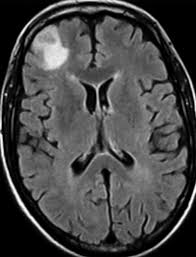
CT HEAD
A CT head, sometimes referred to as a CT brain scanAbout CT HEAD
A CT head, sometimes referred to as a CT brain scan, is a non-invasive diagnostic imaging procedure that utilizes X-rays to produce detailed cross-sectional images of your head, primarily focusing on the brain.
Purposes of a CT Head Scan:
- Diagnosis: A CT head scan is a valuable tool for diagnosing various neurological conditions, including:
- Stroke (identifying bleeding or blood clots in the brain)
- Head injuries (assessing internal bleeding, fractures, or swelling)
- Tumors or masses in the brain
- Infections (such as encephalitis or meningitis)
- Abnormalities in blood vessels
- Epilepsy (helping to locate the source of seizures)
- Evaluation: A CT head scan can also be used to evaluate the effectiveness of treatment for certain conditions, such as monitoring tumor response after treatment.
CT Head vs. CT Brain:
While the terms "CT head" and "CT brain" are sometimes used interchangeably, there can be a slight distinction. A CT head scan may encompass a slightly broader examination area including the skull and facial structures in addition to the brain, while a CT brain scan may focus more specifically on the brain tissue itself.
Procedure:
- Preparation: In most cases, no special preparation is required before a CT head scan. You may be asked to remove any metal objects like jewelry or hairpins that could interfere with the scan images.
- Process: During the scan, you will lie down on a movable examination table that slides into the CT scanner, a large donut-shaped machine. Straps or headrests may be used to ensure you remain still during the scan. The CT scanner will rotate around your head, taking multiple X-ray images from different angles. The entire procedure typically takes around 15 minutes, with the actual scanning time being just a few seconds.
Benefits of a CT Head Scan:
- Fast and detailed: A CT head scan is a relatively quick procedure that can provide detailed images of your brain and sometimes surrounding structures.
- Painless: The CT scan itself is painless. You may feel slight pressure when the technologist positions you in the scanner.
- Non-invasive: No needles or injections are involved in a CT head scan.
Things to Consider:
- Radiation exposure: While the radiation dose from a CT scan is generally low, it is important to be aware of it, especially for pregnant women or children undergoing multiple scans. Discuss the risks and benefits with your doctor.
- Alternatives: Depending on the reason for the scan, your doctor might recommend alternative imaging tests like an MRI (magnetic resonance imaging) scan, which doesn't involve radiation but can be more expensive and time-consuming.
Overall, a CT head scan is a valuable diagnostic tool for examining the brain and sometimes surrounding structures in the head. If your doctor recommends a CT head scan, discuss any concerns you may have about radiation exposure and ask about the reasons behind the recommendation.